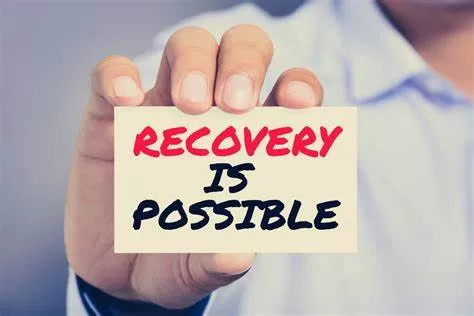
Addiction recovery is a complex journey that requires a comprehensive approach encompassing physical, emotional, and mental well-being. While therapy, support groups, and medication-assisted treatments play pivotal roles in overcoming addiction, one often underestimated factor can significantly impact the recovery process: sleep.
Adequate and restorative sleep is essential for general health and plays a vital role in supporting individuals on their path to recovery from addiction. This article delves into the importance of proper sleep during addiction recovery and explores how it can facilitate healing.
Why is Sleep So Important?
Sleep is of utmost importance for our overall health and well-being. It is a fundamental biological process that allows our bodies and minds to rest, recharge, and rejuvenate. Here are some key reasons why sleep is so important:
- Physical Restoration: During sleep, the body undergoes essential restorative processes. Tissue repair, muscle growth, and the release of growth hormones occur during deep sleep stages, aiding in physical recovery and promoting overall health.
- Cognitive Function: Sleep plays a critical role in cognitive functioning. It enhances memory consolidation, learning, and problem-solving abilities. Sufficient sleep allows the brain to process and organize information acquired during the day, facilitating optimal cognitive performance.
- Emotional Well-being: A good night’s sleep is closely linked to emotional stability and mental well-being. Lack of sleep can contribute to mood swings, irritability, increased stress levels, and a higher risk of developing mental health disorders like depression and anxiety. On the other hand, quality sleep promotes emotional resilience and helps regulate emotions.
- Immune System Support: Sleep is vital in supporting the immune system. During sleep, the body produces and releases cytokines, proteins that regulate immune responses and help fight off infections and inflammation. Sustaining adequate sleep strengthens the immune system, reducing the risk of illness and promoting faster recovery when sick.
- Physical Health: Insufficient sleep is associated with an increased risk of various health problems. Chronic sleep deprivation has been linked to obesity, diabetes, cardiovascular diseases, and compromised immune function. On the other hand, prioritizing proper sleep contributes to maintaining a healthy weight, reducing the risk of chronic diseases, and promoting overall physical well-being.
- Mental Health: Sleep and mental health are intricately interconnected. Lack of sleep or poor sleep quality can contribute to developing or exacerbating mental health disorders, such as depression, anxiety, and bipolar disorder. Sustaining good sleep habits is crucial for maintaining optimal mental health and well-being.
- Safety and Alertness: Sleep deprivation impairs alertness, reaction times, and decision-making abilities, making individuals more prone to accidents and errors. Whether driving a vehicle, operating machinery, or performing daily tasks, being well-rested enhances safety and promotes optimal performance.
In summary, sleep is a foundational pillar of our health and well-being. It is essential for physical restoration, cognitive function, emotional regulation, immune system support, and overall physical and mental health. Prioritizing adequate and restful sleep is crucial for leading a healthy, productive, and fulfilling life.
The Sleep-Addiction Connection
Sleep and addiction share a reciprocal relationship, with addiction often leading to sleep disturbances and sleep deprivation, exacerbating addictive behaviors. Substance abuse alters the brain’s chemistry and disrupts the natural sleep-wake cycle, making it difficult for individuals to experience restful sleep. This vicious cycle perpetuates the addiction and hampers the recovery process.
Why Sleep Matters in Addiction Recovery
- Physical Restoration: During sleep, the body undergoes crucial therapeutic processes, including tissue repair, immune system strengthening, and hormone regulation. These processes are vital for individuals in recovery as their bodies are healing from the damaging effects of substance abuse.
- Emotional Regulation: Proper sleep is closely linked to emotional stability and regulation. Sleep deprivation can intensify negative emotions, such as anxiety and depression, making coping with triggers and cravings more challenging during addiction recovery. Restful sleep provides a stable emotional foundation and enhances resilience.
- Cognitive Functioning: Addiction and sleep deprivation both impair cognitive function. By prioritizing sleep, individuals in recovery can enhance their ability to focus, concentrate, and make informed decisions. This mental clarity is vital for effective therapy, learning new coping strategies, and rebuilding one’s life.
- Relapse Prevention: Sleep deprivation weakens impulse control and decision-making abilities, increasing the vulnerability to relapse. Conversely, adequate sleep enhances self-control, reduces cravings, and strengthens the ability to resist triggers. Incorporating healthy sleep habits significantly reduces the risk of relapse and supports long-term recovery.
Strategies for Promoting Proper Sleep during Addiction Recovery
- Establishing a Consistent Sleep Routine: Setting a regular sleep schedule, with fixed bedtime and wake-up times, helps regulate the body’s internal clock and promotes better sleep quality.
- Creating a Sleep-Conducive Environment: A dark, quiet, and comfortable environment can significantly improve sleep quality. Minimize noise, use blackout curtains, and ensure a comfortable mattress and pillows to optimize rest.
- Practicing Relaxation Techniques: Engaging in relaxation exercises such as deep breathing, meditation, or gentle stretching before bed can calm the mind and promote relaxation conducive to sleep.
- Limiting Stimulants: Avoiding caffeine, nicotine, and electronics close to bedtime can prevent sleep disruptions and promote better sleep quality.
- Seeking Professional Help: If sleep disturbances persist or become severe, consulting a healthcare professional specializing in addiction recovery can provide guidance and support. They may recommend therapies or medications tailored to address sleep issues during recovery. Contact the team at The Dawn Rehab Thailand for more information.
Conclusion
While addiction recovery is undoubtedly challenging, prioritizing proper sleep is an often overlooked but essential aspect of the healing journey. By recognizing the crucial role of sleep in physical, emotional, and cognitive well-being, individuals in recovery can unlock the benefits of restorative sleep. Through implementing healthy sleep practices, they can enhance their overall recovery process, improve their chances of maintaining sobriety, and pave the way for a brighter, healthier future.










